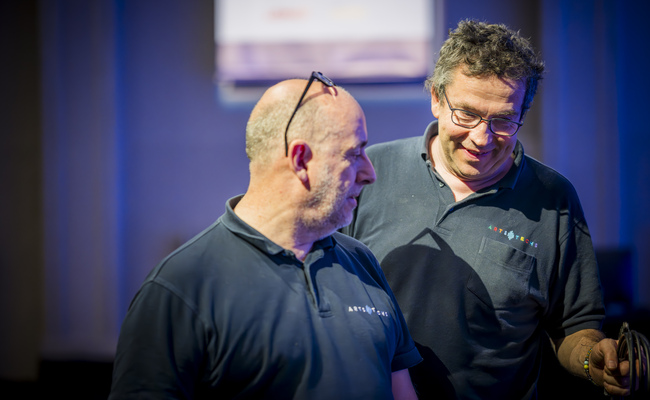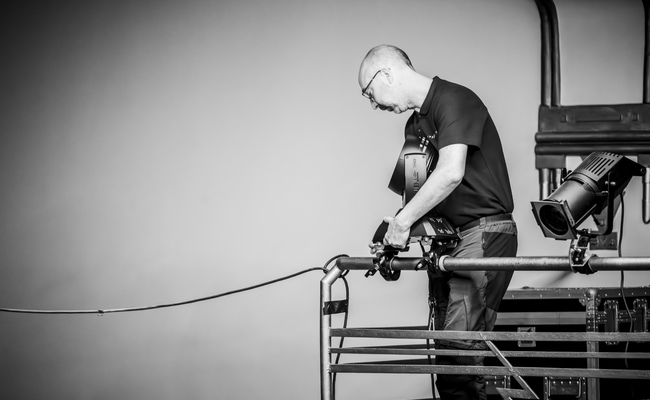
How to support guest speakers before they step on stage
There’s that strange moment, just before stepping in.
A hand on the curtain, a slightly crumpled badge, voices heard but not yet seen.
The heart beats faster. You silently rehearse your first line.
Not yet on stage… but no longer in the shadows either.
For them : the guests, the experts, the special witnesses, it’s often a first.
An unfamiliar microphone, eyes fixed on them, and one question looping in their mind:
“Will I be good enough?”
They’re invited. Not necessarily prepared.
What many people forget is that the speakers we invite aren’t stage professionals.
They’re leaders, experts, field practitioners, brilliant minds, or unique voices.
But speaking in front of an audience isn’t their everyday job.
Capturing attention with a microphone in hand isn’t their craft.
And even when their content is solid, the form can waver because of a small technical glitch, a blurry schedule, or unexpected stress.
Creating a space for ease
Supporting a guest speaker isn’t about teaching them how to speak in public.
It’s about helping them be themselves when all eyes are on them.
And that starts long before they step on stage.
It means offering:
- a clear, jargon-free briefing,
- a human presence, discreet but steady,
- a rehearsal opportunity, never a requirement,
- a mic check that reassures without patronizing,
- and a knowing glance at just the right moment.
It’s a chain of small details, all aiming for one thing: reducing mental load to free the voice.
Sometimes, it’s as simple as this 👇
Giving them a point of reference. Showing where to place their notes, how their mic works…
Letting them know it’s okay to hesitate.
Not to “coach” them. Just to make sure they feel supported, not scrutinized.
When support is right, It becomes invisible
Good support doesn’t show.
It doesn’t take over, it holds the space.
It doesn’t direct, it prepares the ground.
It allows the speaker to focus on what they came to share, not on what they have to manage.
And that’s how a stressful moment can turn into a memorable one : for them, and for the audience.
What matters most
Supporting a guest speaker means recognizing that they didn’t ask to be on stage, they were invited.
It means understanding that expertise doesn’t guarantee ease.
And it means making sure, with just the right balance of care and discretion, that their voice finds its place : clear, steady, and embodied.
You don’t need to overdo it.
But you do have a responsibility not to leave someone alone with a microphone and a head full of doubts.
Because in every event, there are these invisible balances. The ones that turn nervousness into presence, and words into impact.
Written by Julie Verstappen, event coordinator with 20+ years of experience
After years of designing and coordinating diverse events, from adaptive sports to corporate training, I’ve learned that success isn’t just about logistics or technical details. It comes from a delicate balance of clear objectives, smooth execution, and shared emotions.
Through my articles, I offer insights and practical advice drawn from real-life experience to help you transform ideas into unforgettable experiences designed to achieve your goals and leave a lasting impression.


